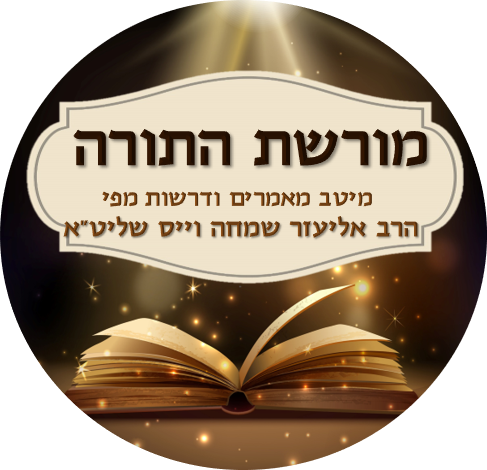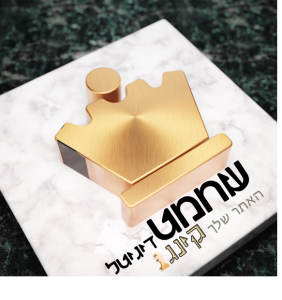Devarim-a special Trop
“How can (eicha) I alone carry your contentiousness, your burdens, and your quarrels?” (Deuteronomy 1:12). Moshe Rabbeinu bemoans his difficulties in leading Klal Yisrael (The Children of Israel): “Eicha esa levadi tarchachem umasaachem verivchem” “How can I alone carry your contentiousness, your burdens, and your quarrels” (Devarim 1:12)?
Chazal (Our Sages) teach us that three prophets used the word “eicha”. The first was Moshe Rabbenu, whose words we have just cited. Then came Yeshayahu with his statement which is read in the Haphtarah (section from the Prophets) for Parshat Devarim: “eicha hayta lezona” “How has she become a harlot” (Yeshayahu 1:21), followed by Yirmiyahu whose book of Eicha opens with: “Eicha yashva badad” “Alas she sits in solitude” (see Eicha Rabba).
There is a traditional manner of chanting the Torah, called Trop (cantillation). There is a standard Trop for the Torah reading with a few exceptions, such as the cantillation of the Ten Commandments or the Song by the Sea. There is a special Trop for the Haftara reading which is standard for all readings of Haftarot with the exception of the Haphtarah for Parshat Devarim: Shabbat Hazon (including the verse”eicha hayta lezona” “How has she become a harlot” (Yeshayahu 1:21) which is mainly chanted in the Megillat Eicha tune and a different Trop for the reading of the five Megillot with the exception of Megillat Eicha which has a special mournful sounding Trop.
The above-mentioned verse in this week’s Torah portion. “How can (eicha) I alone carry your contentiousness, your burdens, and your quarrels?” (Deuteronomy 1:12) also has a special Trop. Why is this so?
This verse serves as an introduction to Moshe’s appointment of judges. What is so special and significant about Moshe telling the Jewish people about his judicial system that puts it on the same level as leaving Egypt and receiving the Torah so that it merits a special Trop? On Tisha B’av (Fast of the 9th of Av), we read the book of Eicha (Lamentations). Parshat Devarim is always read on the Shabbat before Tisha B’av, and we read the above verse, which begins with the word “eicha”, in the same mournful Trop that we will use to read Eicha in the coming week. But why? On the Shabbos reading before Purim, we don’t find a verse to read in the same tune as we do Megillat Esther. What is the special connection between Tisha B’av and this verse, in which Moshe tells the people that he is to establish a system of judges? Why did Hashem use the same word -“eicha”-that would later fill our hearts with pain and sorrow? Why do we sound that verse in Devarim in the same mournful tune that we chant for the Book of Eicha .In order to understand this anomaly, we must look at the initiating cause of Tisha B’av. Our Sages explain that the First Temple was destroyed because of idolatry and other offenses against Hashem, particularly a lack of attentiveness in the observance of His mitzvot.The Second Temple was destroyed because of hatred and strife amongst the Jewish people. The Jewish people seemed to find and create trouble when none was necessary, thus bringing about their own destruction. This was unfortunately not new to the Israelites, as Moshe acknowledged this trait many years before. In the aforementioned verse Moshe wondered how he could possibly handle all of the court cases of the Jewish people in the desert. How could he handle all of the arguments between the people? The question arises, what disputes could the Jewish people have had? They existed in an environment fully sustained by God all of the food, clothing, and shelter were provided by Hashem. There were no land-claims over which to argue; no business dealings which could be the cause of altercations. We are told explicitly of the only cases of outright disobedience to Hashem, and even the only reported inheritance case (the daughters of Tzlophchad) at the end of the years in the desert was taken directly to Moshe, who referred it to Hashem. What reason did the Jews have for arguing amongst themselves, if not argument itself? This is why Moshe lamented. “I have to establish a system of judges”, he cried, “even in an environment where there should be no cause to argue. You have just received the Torah”, he tells them, “and yet you fail to follow Hashem’s commandments as you should! How can I possibly handle all of your dealings and troubles?”
The “eicha” that Moshe used, crying over the fact that the Israelites could not get along with each other, is the very same “eicha” which is the keynote of Tisha B’av. Throughout our history, the Jewish people have fallen victim to their own internal strife and arguments. On Tisha B’av we mourn the loss of our Temples and the many ensuing tragedies of Jewish history, and we beseech Hashem to aid us in the building of the Third Temple.
In Parshat Devarim we are told what we must do to merit that redemption: If it was senseless arguing that caused Moshe to lament, then it would be the exact opposite, acts of kindness that would have made Moshe happy. May we act upon the lesson of this week’s Torah portion , to be careful in the observance of mitzvot, and to love our fellow Jew teach so that this Tisha B’av, rather than lament the loss of our first two Temples, we will rejoice in the building of the Third.

 שחמט דיגיטל
שחמט דיגיטל